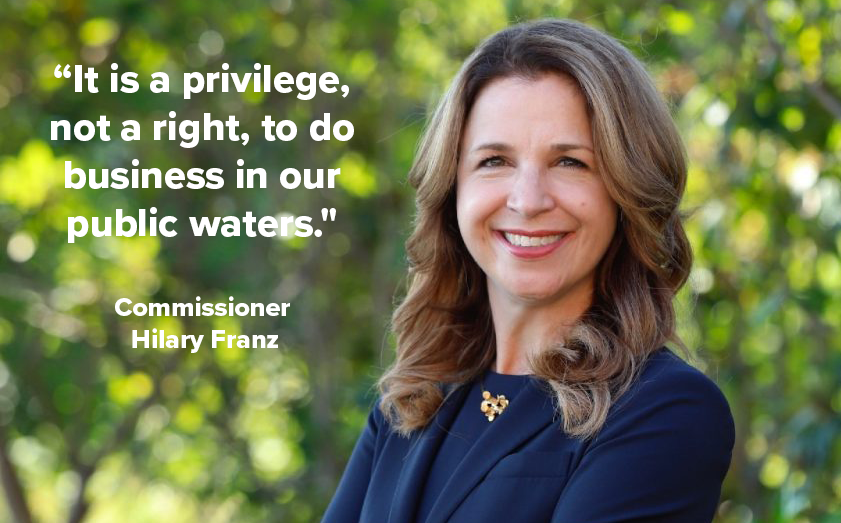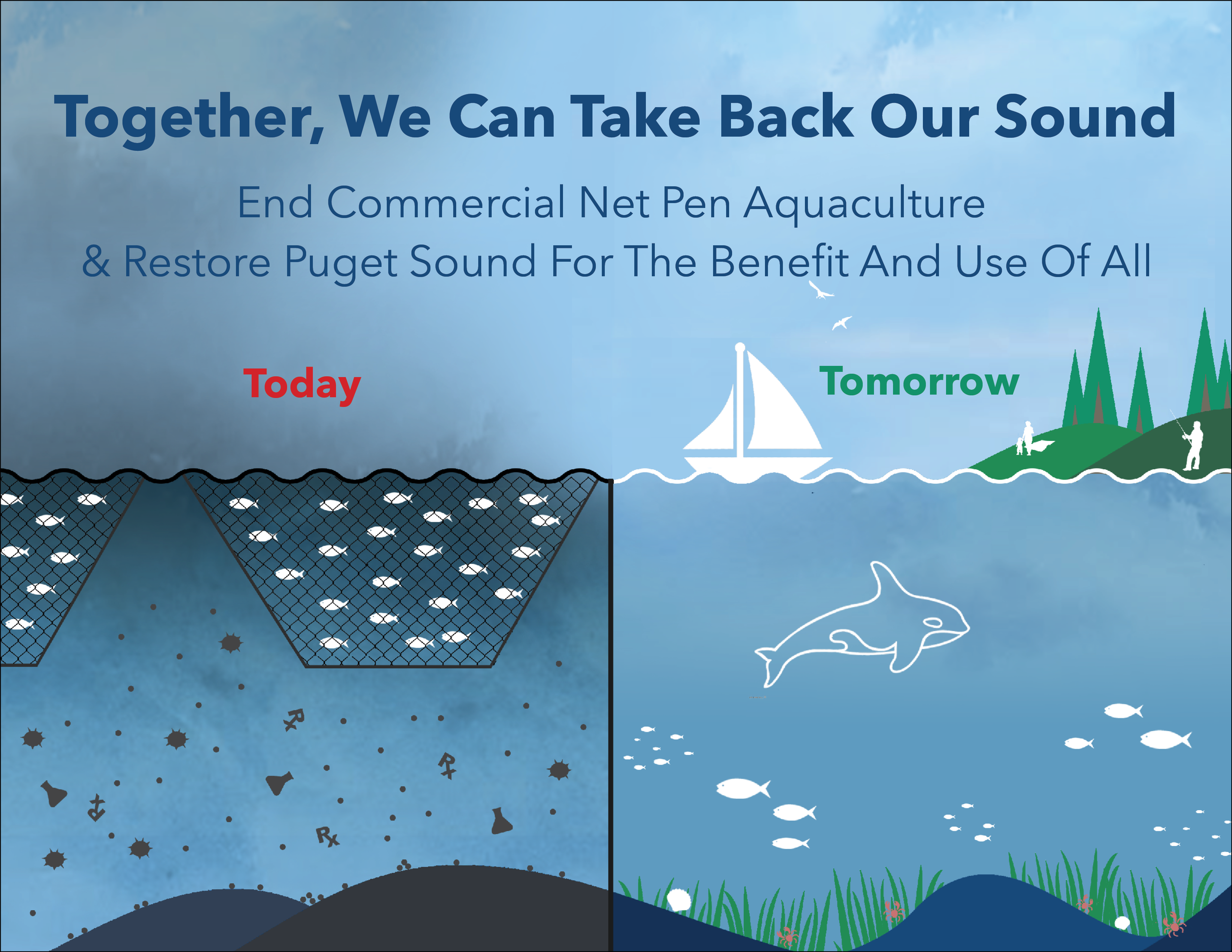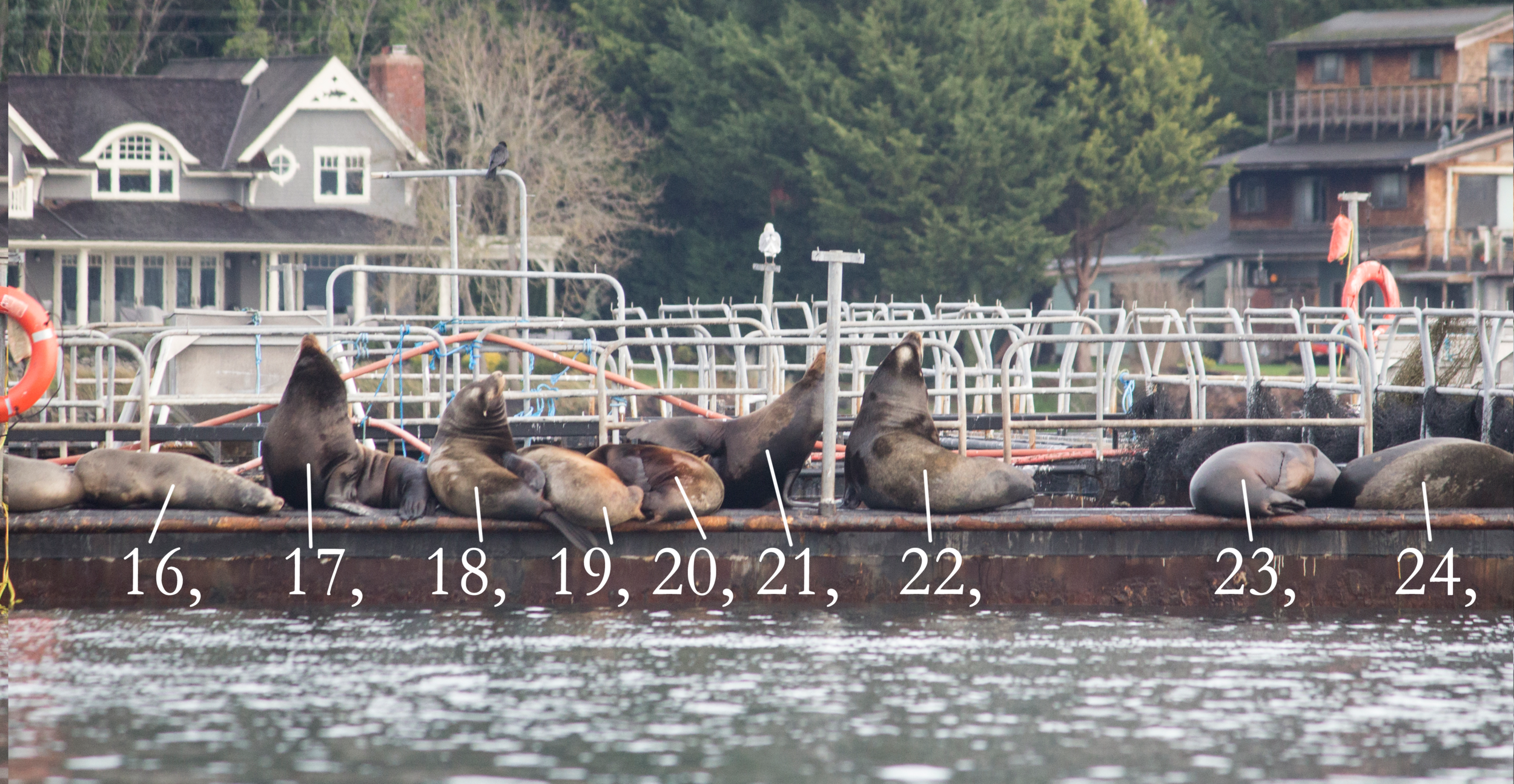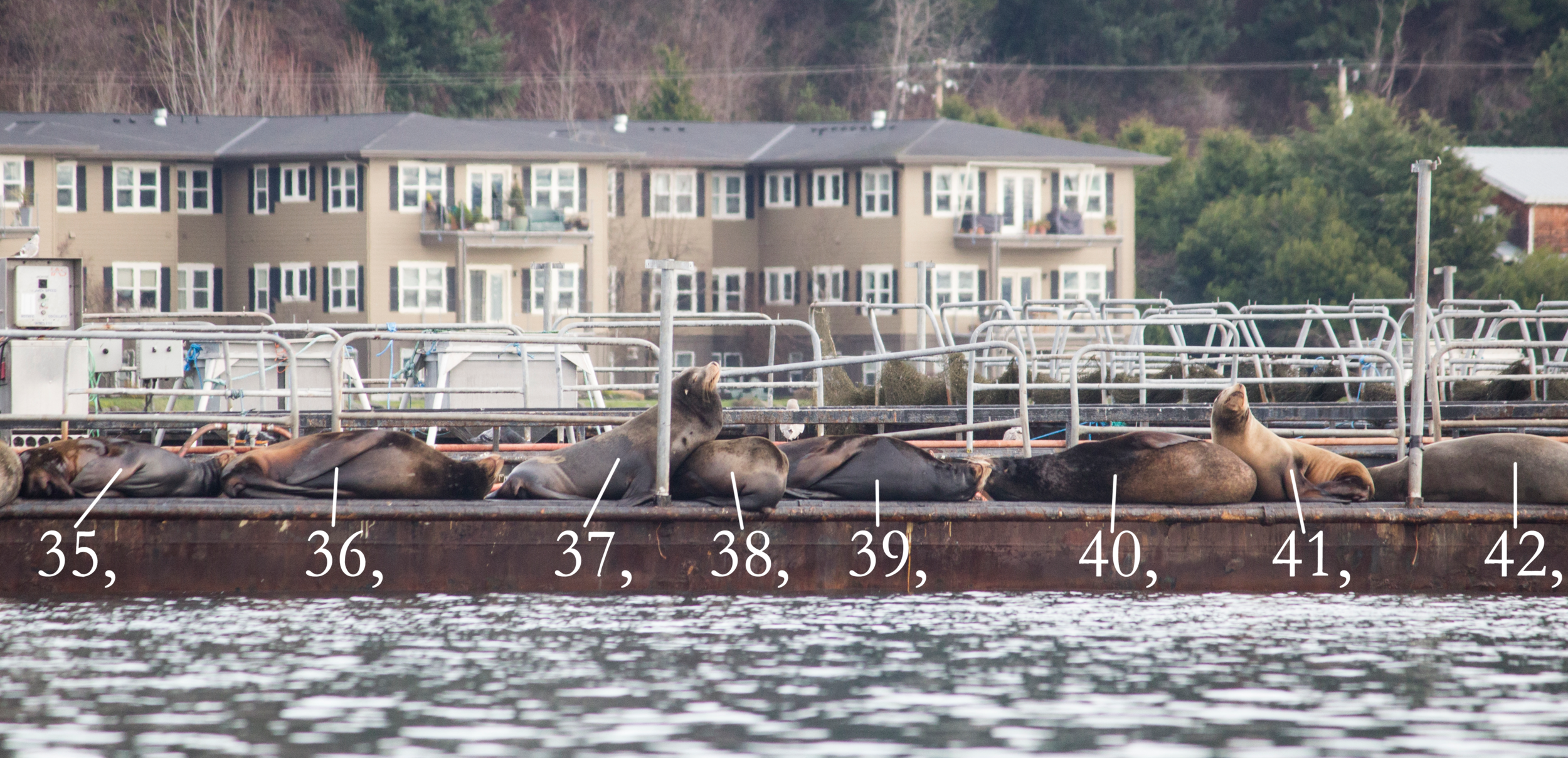A Monumental Victory for Wild Salmon, Orcas, and the Health of Puget Sound
For Immediate Release
PDF Version
Media Contacts:
Emma Helverson, Executive Director, Wild Fish Conservancy, 484-788-1174, emma@wildfishconservancy.org
Kurt Beardslee, Director of Special Projects, Wild Fish Conservancy, 206-310-9301, kurt@wildfishconservancy.org
November 18th, 2022— Today, Washington’s Commissioner of Public Lands Hilary Franz made history when she announced a new groundbreaking executive order that will prohibit commercial net pen aquaculture in Washington state marine waters.
This new policy was announced earlier today by Commissioner Franz at a press conference on Bainbridge Island overlooking the Rich Passage net pens alongside leaders from Wild Fish Conservancy and Suquamish Tribe. The news comes on the heels of another long-awaited and widely supported decision announced earlier this week by Commissioner Franz that DNR has refused new decade-long leases to global seafood giant Cooke Aquaculture to continue operating commercial net pens in Puget Sound.
“After the incredible news announced earlier this week, it is almost impossible to believe we are now celebrating an even bigger, groundbreaking victory for our wild salmon, orcas, and the health of Puget Sound,” said Emma Helverson, Executive Director of Wild Fish Conservancy. “By denying new leases to Cooke and bringing forward this comprehensive, bold new policy to prevent commercial net pens from ever operating in Washington marine waters again, Commissioner Franz is ensuring Puget Sound will be protected, not just now, but far into the future for the benefit of generations to come.”
Together, the lease denial and executive order will require Cooke to remove all of their net pen facilities from Puget Sound before the end of year, marking the end of the commercial net pen industry that has operated in Washington state for over 40 years. The benefits of these actions for the recovery of wild fish, water quality, and the greater health of Puget Sound cannot be overstated. Immediately, this action will cease chronic untreated pollution that has been discharged daily at these aquatic sites for over forty years. Finally, these heavily polluted and degraded sites will have the opportunity to heal and begin the process of natural restoration as part of the largest passive restoration project in Washington's history.
The decision will also eliminate many major risk factors that harm the recovery of wild salmon and steelhead, including ending the risk of exposure to viruses, parasites, and diseases that are amplified and spread at unnatural levels by massive densities of farmed fish and the risk of future catastrophic escape events in which farmed fish could compete with, attempt to interbreed, or spread pathogens to threatened and endangered wild fish.
DNR’s decision will also restore the public and Tribal access to over 130 acres of Puget Sound that have been restricted by this industry for over forty years. More broadly, Washington’s decision will unite the entire U.S. Pacific Coast in excluding this industry from marine waters. Combined with Canada's recent commitment to transition open water net pens out of British Columbia waters, this decision also has the potential to eliminate a major limiting factor to wild Pacific salmon recovery at a coastwide, international scale.
“After the news earlier this week, we’ve heard from colleagues all around the world in places like Chile, Tasmania, Scotland, and so many others working to protect their own public waters from the environmental harm of commercial net pen aquaculture,” says Helverson. “Today’s historic decision is setting a new standard that will serve as a model and rallying cry to bolster the efforts of communities and governments around the world working toward this same end and we stand committed to leveraging our massive success to support their efforts.”
Cooke is the same company found at fault for the catastrophic 2017 Cypress Island net pen collapse that released over 260,000 nonnative and viral-infected Atlantic salmon into Puget Sound. Cooke purchased all of Washington’s net pen facilities in 2016 with plans to expand exponentially in Washington waters.
In response to this expansion plan, Wild Fish Conservancy launched the Our Sound, Our Salmon (OSOS) campaign in April 2017 to raise public awareness about the environmental impacts of commercial net pen aquaculture. In 2018, a coalition of over 10,000 individuals and hundreds of businesses and organizations under the banner of OSOS, worked in concert with Tribal efforts, to advocate for Washington’s landmark law banning nonnative Atlantic salmon aquaculture.
In July 2020, in response to Cooke avoiding the ban by transitioning to native species, the OSOS campaign launched a new initiative, Taking Back Our Sound, with the goal of preventing Cooke from receiving new leases. Through this effort, 9,000 individuals and 127 business and organizations called on DNR’s Commissioner of Public Lands Hilary Franz through a petition and direct actions, which included a Bainbridge Island city resolution, to deny new leases to Cooke and to restore Puget Sound for the benefit and use of all. In making her decision over Cooke’s lease request, DNR was required by statute to issue a decision in the best interest of the public.
“It’s clear this victory for wild salmon, orcas, and Puget Sound belongs to no one person or group. Without the separate actions of thousands of individuals, Washington’s Tribal Nations, businesses, organizations, chefs, fishing groups, scientists, elected officials, and so many others working together over the last five years, this would never have been possible,” says Helverson. “It is truly inspiring to see what is possible when the public unifies their voices and works together with the law and science on their side toward the shared goal of a healthier Puget Sound.”
###
Wild Fish Conservancy is a conservation ecology organization based in Washington state and dedicated to conservation, protection, and restoration of the Northwest’s wild fish and the ecosystems they depend on. wildfishconservancy.org
Our Sound, Our Salmon is a public outreach campaign launched in 2017 and facilitated by Wild Fish Conservancy to raise awareness of the harm caused by commercial net pen aquaculture and to lead the public in taking action to protect Puget Sound from this industry. Learn more at oursound-oursalmon.org






























